If You Notice These 11 Things In Your Parents' House, They're Deeply Sad Without You
Loneliness is an experience we all grapple with at one point in our lives.
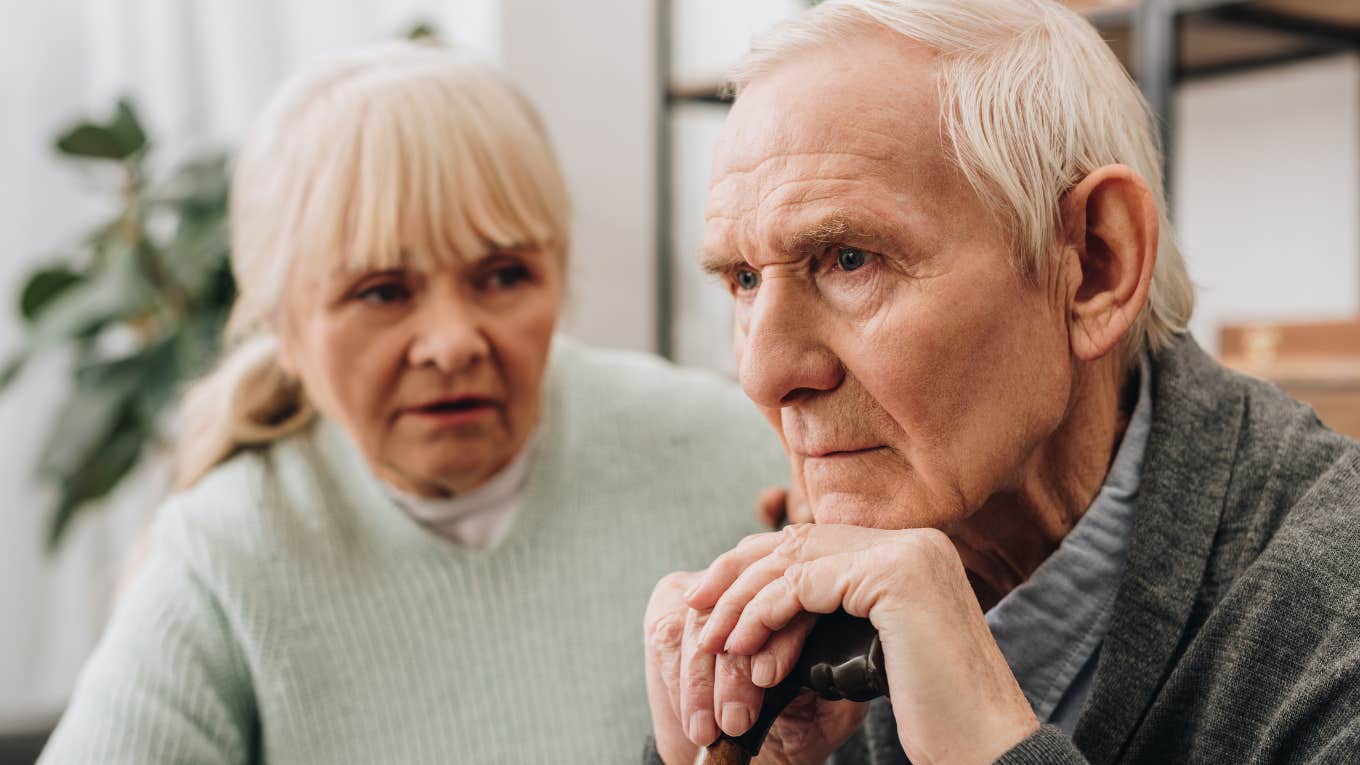 LightField Studios | Shutterstock
LightField Studios | Shutterstock Loneliness, depression, anxiety, and social isolation are all natural for many people to experience once they become “empty nesters,” at least according to a study from the Journal of Education and Health Promotion. For people who don’t have healthy communication patterns or solid internal coping skills, grappling with the natural family disconnect that comes from adult children leaving the home can be wildly difficult.
While most may do their best to hide their pain or masquerade it as something else for the sake of “protecting” their kids when they come to visit, there are certain “red flags” that they’re struggling more than you know. And, for example, if you notice these specific things in your parents’ house, they’re deeply sad without you.
If you notice these 11 things in your parents’ house, they’re deeply sad without you
1. Your childhood bedroom and things are untouched
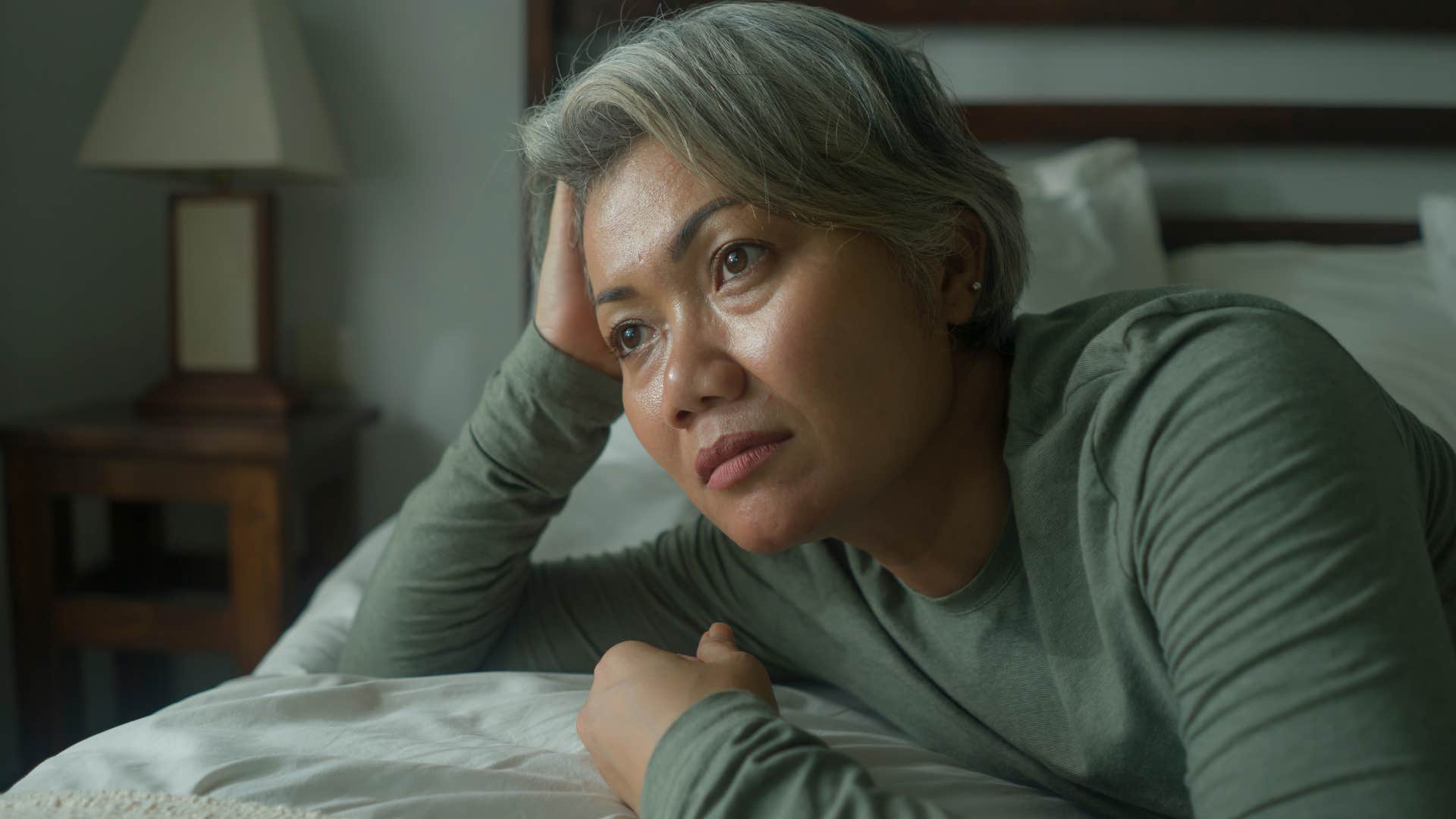 TheVisualsYouNeed | Shutterstock
TheVisualsYouNeed | Shutterstock
Like a lot of memorabilia, family photos, and sentimental items like a greeting card, a childhood bedroom can be a comfort to parents struggling to grapple with a naturally shifting family dynamic. Of course, having your bedroom untouched and all your things spread across the room can invoke positive feelings and memories, but it can also be a site of “nostalgic depression” if they’re not careful.
Loneliness is often intertwined with nostalgic feelings in nuanced ways. When someone’s feeling lonely or sad in the current moment, revisiting the past can bring a fleeting sense of comfort, but only leave them feeling more unhappy and isolated.
2. Your favorite things are always around
 PeopleImages | Shutterstock
PeopleImages | Shutterstock
Whether it’s snacks in the pantry, your favorite drink, or a comfortable chair left untouched for your visit, sad parents who truly miss their adult kids will do everything in their power to intrigue you to come over or to protect your happiness at home.
Of course, there’s a certain level of infantilization that adult children should be wary of with boundaries at home, but for the most part, this effort and these material things are all signs that they’re deeply sad without you and want to intrigue you into coming over more often.
3. Their TV is always on
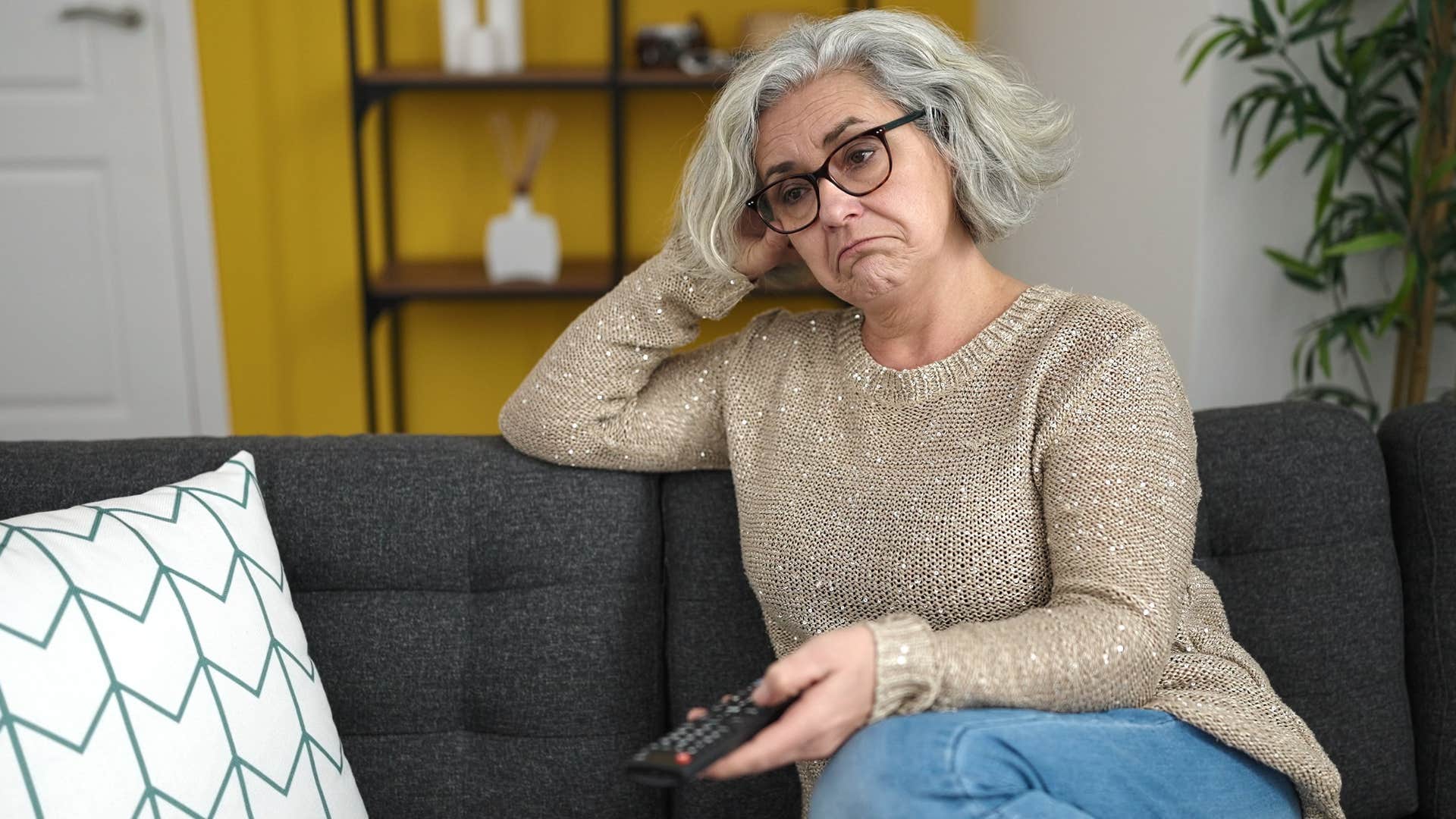 Krakenimages.com | Shutterstock
Krakenimages.com | Shutterstock
Even if it provides parents a fleeting sense of comfort and distraction at home to leave the TV on in the background, much like leaving lights on does, some experts suggest that this passive entertainment can lead to worse cognitive outcomes for aging individuals. Watching TV or engaging with people online directly can often boost cognitive abilities and attention, but when it’s simply a TV in the background, it can be less helpful.
It’s a coping mechanism, according to a study from The Gerontologist, for the most part. If you notice these things in your parents’ house, they’re probably sad without you and trying to find ways to cope with the silence and isolation they feel.
4. Their holiday decorations are up all the time
 Krakenimages.com | Shutterstock
Krakenimages.com | Shutterstock
Not only do parents who feel lonely and sad without their kids keep their comforting holiday decorations up for much longer than the average person, but they also put them up early. They’re always the first person to put up holiday decorations and the last person to take them down — they’re comforting at home.
Like psychologist Eva M. Krockow suggests, the experience of and intentionality about holiday decorations at home isn’t just an internal comfort — it’s also a full coping mechanism for loneliness in incredibly powerful ways. Homes with holiday decorations aren’t just perceived to be warmer to strangers — putting them up is often a community experience with social benefits to offer.
So, if you notice these things in your parents’ house, they may feel more lonely or sad without you around, and use decorations as both a ploy to connect and to comfort themselves.
5. They have a special relationship with pets
 Krakenimages.com | Shutterstock
Krakenimages.com | Shutterstock
If you go home and suddenly your childhood dog has ten new outfits, a room to himself, and a set routine that your parents never stray away from, this could be a sign that they’re deeply sad without you.
Considering many parents take on a “parenthood identity,” where their self-worth relies on taking care of others, when their adult children leave, it can be disorienting to not know where to place that energy and intention. Pets can be the perfect companions, especially for coping with the sadness that often comes from that natural disconnection.
6. Your notes and cards are hung on the fridge
 PeopleImages | Shutterstock
PeopleImages | Shutterstock
If the handwritten note you left them after your last visit is stuck to the fridge or your greeting card from the holidays is proudly placed in the living room, those could be signs that your parents are deeply sad without you.
These little tokens of love make them feel closer to you, even when you’re not around and they’re missing you.
7. Their calendar is full of your important dates
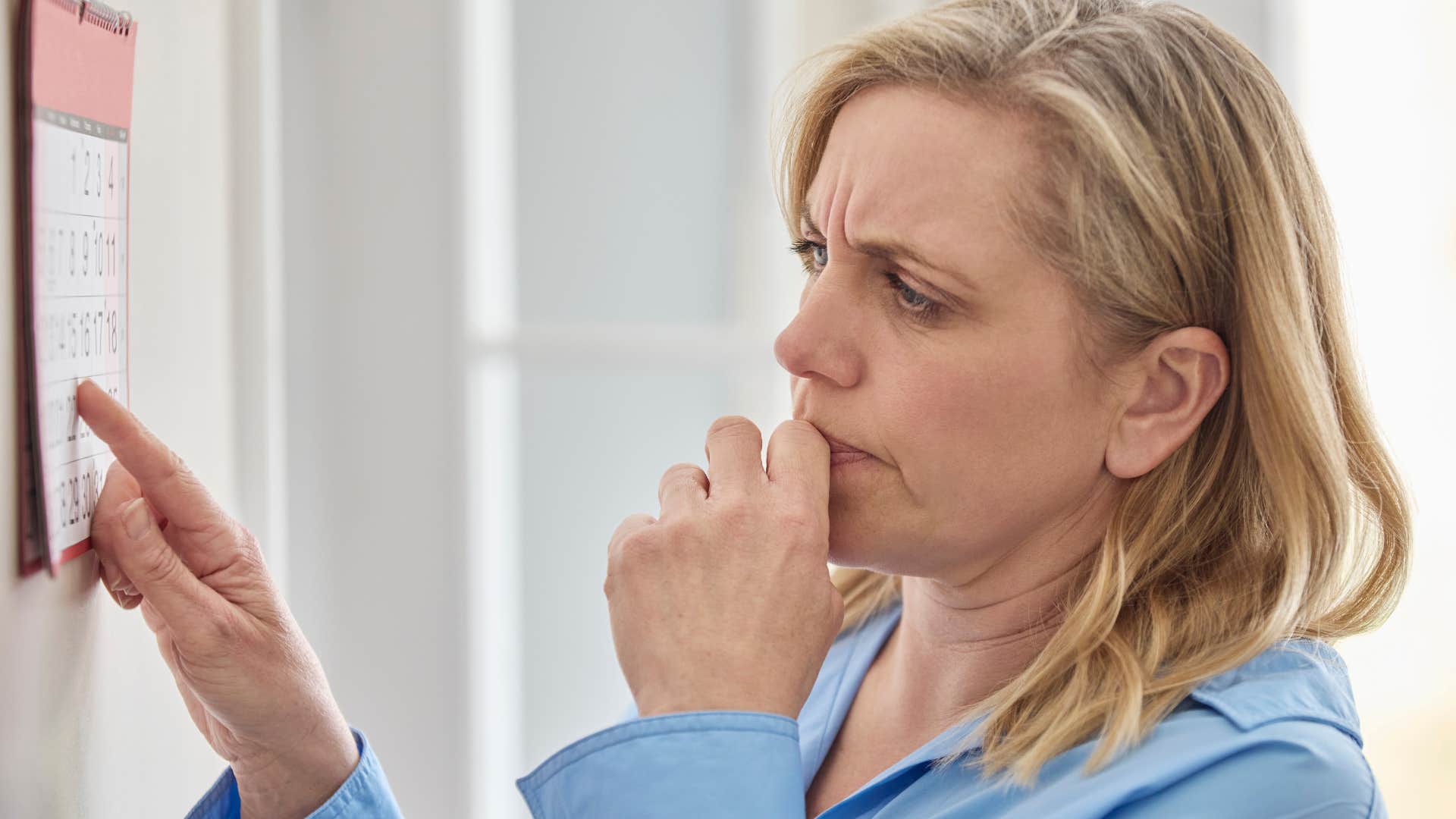 SpeedKingz | Shutterstock
SpeedKingz | Shutterstock
Instead of having reminders about community get-togethers, personal doctor’s appointments, and hangouts with friends on their calendars, if your parent is deeply sad without you, they’ll instead track your life.
Of course, using a personal, physical calendar is incredibly healthy for time management and memory, but only when you’re tracking things that are important and relevant to your own life. For these parents, their calendar is only a representation of their isolation and loneliness, and knowing where you are or what you're doing allows them to feel closer to you.
8. They have tons of packages
 Gladskikh Tatiana | Shutterstock
Gladskikh Tatiana | Shutterstock
Whether it’s retail therapy online to cope with feelings of loneliness, which is fairly common for adults with the freedom or accessibility to spend, according to a study from the Journal of Retailing and Consumer Services, or a ploy to get some social connection with the mailman, if you notice tons of packages at your parents’ house, it could be a sign that they’re deeply sad without you.
Many people use financial spending habits to cope with internal feelings of loneliness, and while it can provide a fleeting sense of comfort and dopamine, it only places already financially uncertain people in a worse, more stressful situation.
9. Their guest room is always ready
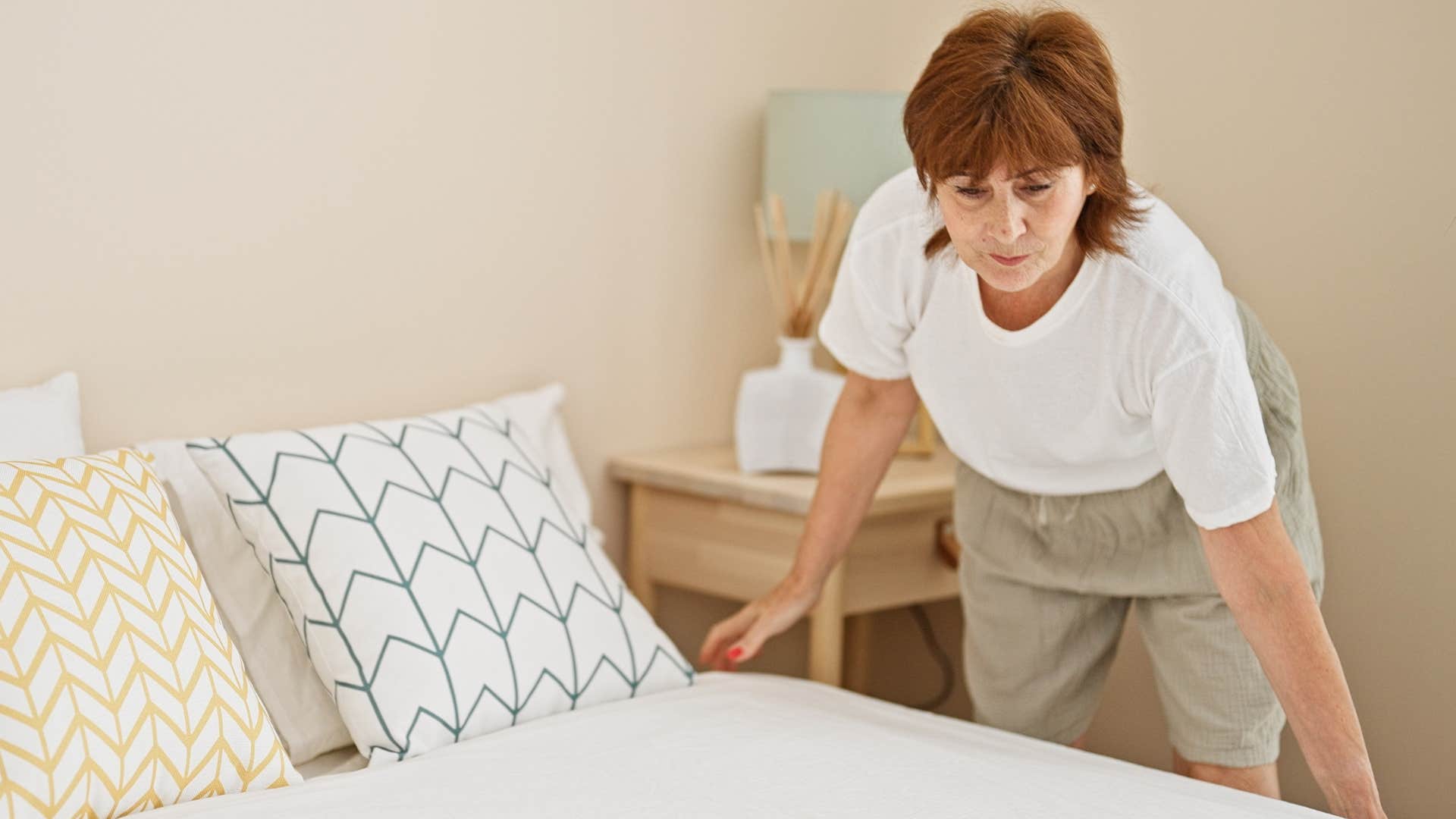 Krakenimages.com | Shutterstock
Krakenimages.com | Shutterstock
If you notice the guest room is always ready and untouched in your parents’ house, they could be deeply sad without you. They may even rely on misguided guilt-tripping rituals to try to get you to stay for longer, even if it comes at the expense of their own well-being and the family’s dynamic.
If you come over for a few minutes or swing by on a whim, they’ll always immediately offer up the guest room — trying to cling to as much quality time as possible before going back to their own dreaded routine.
10. They avoid home upgrades
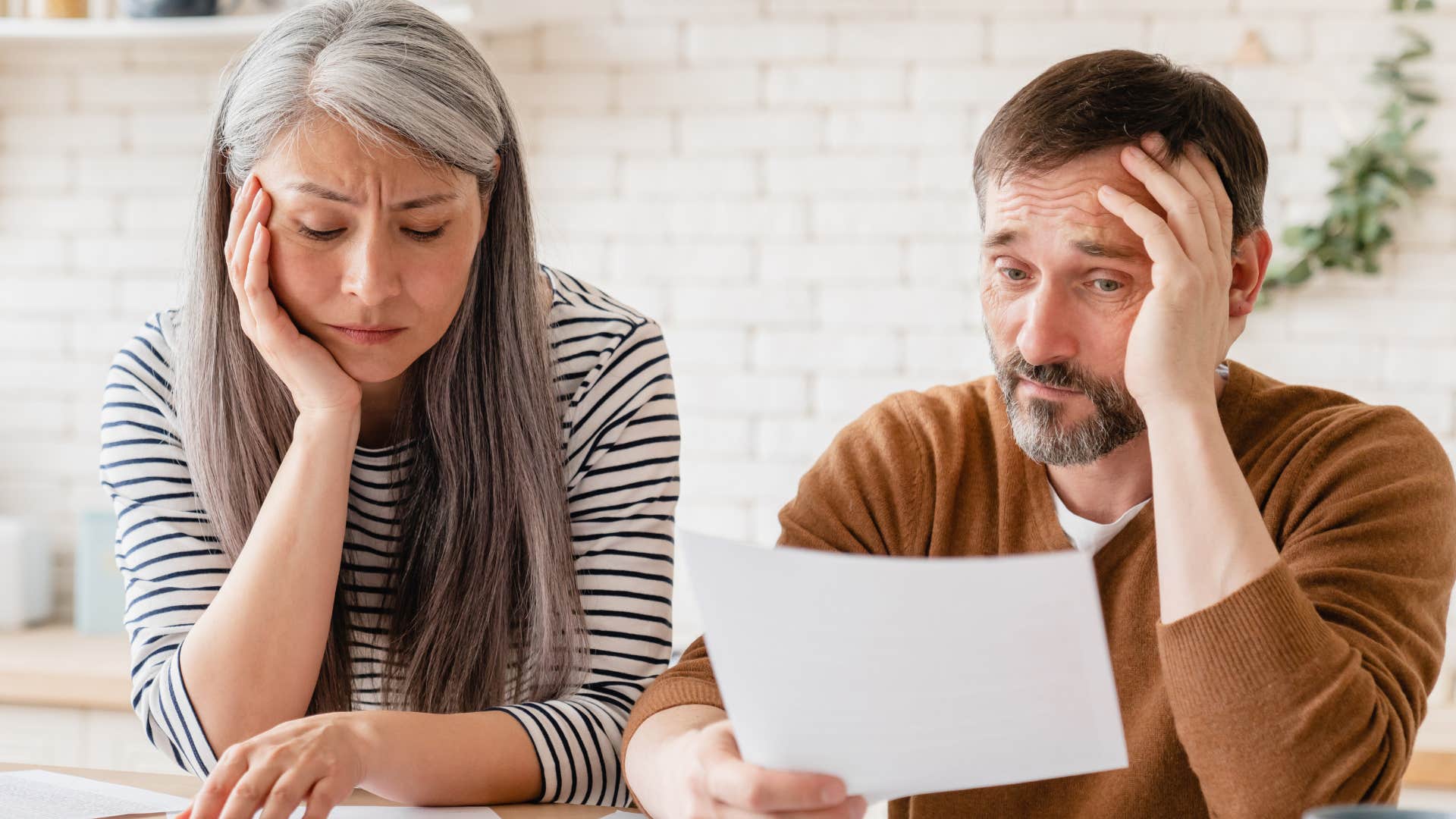 Inside Creative House | Shutterstock
Inside Creative House | Shutterstock
Whether it’s turning your childhood bedroom into an office or reimagining their space without kids, parents who feel deeply sad without their adult kids along may also be clinging to the past in a literal sense. They’re holding on, not only to memories of their kids at home and tokens of their childhood, but the literal version of the home their kids grew up in.
So, if you notice that your parents are never upgrading their home and are consistently holding back on new projects in their living spaces to protect a sense of nostalgia, they’re deeply sad without you.
11. They have a million hobbies at home
 Fahng_S | Shutterstock
Fahng_S | Shutterstock
If your parents are deeply sad without you, but have the self-awareness and emotional intelligence to rely on coping skills like a hobby at home to cope, chances are you’ll find evidence of these things around their home.
Whether it’s brand new drawing pencils or a puzzle on the dining room table, they’ve clearly picked up a million and one new hobbies at home — and honestly, good for them.
Zayda Slabbekoorn is a senior editorial strategist with a bachelor’s degree in social relations & policy and gender studies who focuses on psychology, relationships, self-help, and human interest stories.

